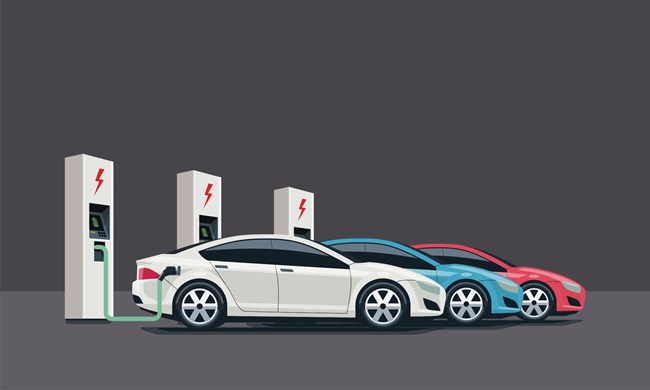
The start point for the best source of fleet information |
Global growth in EV adoption defied Covid-19 pandemic, report finds
Date: 29 April 2021 | Author: Sean Keywood

The electric car market saw major worldwide growth in 2020, despite the effects of the Covid-19 pandemic, according to a new report by the International Energy Agency (IEA).
It states that EV sales were up by over 40%, despite overall car sales being down by 16%, and that this strong momentum has continued into 2021, with sales in the first quarter of this year nearly two and a half times higher than last year.
The Global Electric Vehicle Outlook 2021 report states that there are three main reasons for the resilience of EV sales during the pandemic. One of these is supportive regulatory frameworks, such as CO2 emissions standards and zero-emission vehicle mandates, while also highlighted are additional incentives imposed in some countries to safeguard EV sales from economic downturns, and an expanding choice of EVs for sale - a 40% year-on-year increase in the number of models available - which came alongside a reduction in battery costs.
Although the report highlights government incentives as boosting EV sales, it also notes that the share of these incentives in total EV spending has actually decreased over the past five years, suggesting EVs are becoming more attractive to buyers on their own merits.
It states that the number of EVs on the road worldwide, including cars, vans, trucks, and buses, is on course to reach 145 million by 2030. However, it says this could be increased to 230 million if governments accelerated their efforts.
IEA executive director Fatih Birol said: "While they can't do the job alone, EVs have an indispensable role to play in reaching net-zero emissions worldwide.
"Current sales trends are very encouraging, but our shared climate and energy goals call for even faster market uptake.
"Governments should now be doing the essential groundwork to accelerate the adoption of electric vehicles by using economic recovery packages to invest in battery manufacturing and the development of widespread and reliable charging infrastructure.''
The report states that while, on a well-to-wheel basis, EVs already make a net contribution to reducing carbon emissions, this will improve further as electricity generation networks are decarbonised, and this is one of the actions IEA transport and energy analyst Jacopo Tattini, the lead author of the report, said governments should take to hit a more ambitious electrification target.
He said: "Policies must be strengthened to enable a larger EV deployment, to meet climate goals.
"We should target three areas. First of all, we should tighten fuel economy standards, and zero-emission mandates, in countries and regions that do not have these schemes in place yet.
"Second, we should support the rollout of publicly accessible charging infrastructure, and also developing standards for environmentally and socially sustainable battery manufacture.
"And last, but definitely not least, we should also take care of decarbonising electricity generation, to fully reap the environmental benefits of EVs."










